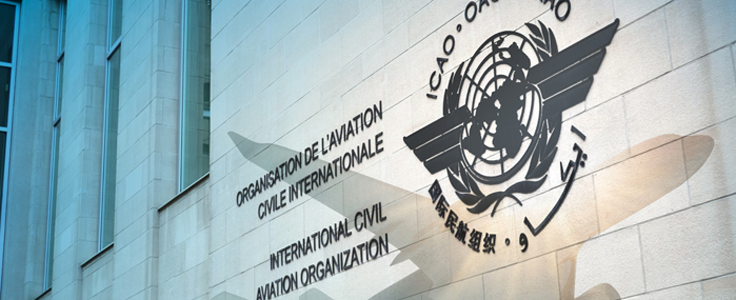Source: ICAO
A new agreement between ICAO and the World Health Organization (WHO) will support the use of evidence-informed and risk-based approaches to international travel, both in the context of the COVID-19 pandemic and other potential public health emergencies.
Signed by ICAO Secretary General Juan Carlos Salazar and WHO Director General Dr Tedros Adhanom Ghebreyesus, the agreement calls for the two United Nations bodies to further maintain and strengthen their cooperation on the provision of advice and assistance to Member States and industry stakeholders on policy and technical matters, in accordance with their respective mandates.
“The WHO has been collaborating with ICAO on public health matters in civil aviation for decades, including in the context of its Collaborative Arrangement for the Prevention and Management of Public Health Events in Civil Aviation (CAPSCA) implementation support programme established in 2009. This collaboration has intensified since the onset of the COVID-19 pandemic within the framework of the UN-wide response,” remarked Secretary General Salazar. “It builds on our successful cooperation within the context of the ICAO Council Aviation Recovery Task Force (CART), which has delivered a harmonized and optimized approach for the safe and resilient restart and recovery of the global flight network.”
“The COVID-19 pandemic has been a severe, unprecedented challenge for the aviation industry and the transportation sector as a whole, and shown why strong collaboration between the health and transportation sectors is so important,” said Dr Tedros Adhanom Ghebreyesus, WHO Director-General. “The transportation sector is key to the socioeconomic recovery from this pandemic, and to preparedness for future health emergencies, including through stronger implementation of the International Health Regulations. The agreement between WHO and ICAO will lay a foundation for our two organizations to work more closely together for a healthier, safer world.”
A joint work plan will guide the implementation of this agreement, including a monitoring and evaluation framework to regularly take stock of the collaboration and joint activities, define and reorient priority areas of collaboration, as needed. The two agencies will use this agreement to establish a closer collaboration on matters related to civil aviation and public health as part of their commitment to the United Nations 2030 Agenda for Sustainable Development.

